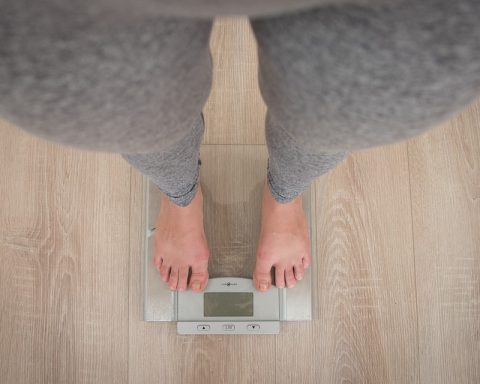Are you grappling with the challenge of fitting exercise into your daily life while striving to shed those extra pounds? You’re not alone in this struggle. Many individuals find it difficult to find the time and motivation for regular physical activity. In a world where busy schedules and sedentary lifestyles dominate, finding effective and sustainable ways to manage weight and attain optimal health has become increasingly important. Amidst the myriad of fitness trends and diet fads, a simple yet powerful solution often gets overlooked: walking. Walking is a natural and accessible activity that holds the key to weight loss and overall well-being. Today, Wisdomspoon will explore the science behind walking for weight loss, delve into its profound impact on health, and provide actionable tips for incorporating walking into your daily routine. Let’s lace up our sneakers and embark on a journey towards a healthier, happier life through the power of walking.
The Science of Walking for Weight Loss
Metabolism and Caloric Expenditure
Walking, though seemingly unassuming, has a remarkable impact on the body’s metabolism. As you walk, your body’s energy expenditure increases, resulting in the burning of calories. The pace and duration of your walks influence the number of calories you burn. Even a moderate-paced walk can lead to a substantial caloric deficit over time, making it an effective strategy for weight loss.
Building Lean Muscle Mass
Contrary to popular belief, walking is not solely a cardiovascular exercise. It also engages various muscle groups, particularly the muscles in the legs, hips, and core. Consistent walking can stimulate the growth of lean muscle mass, which contributes to a higher resting metabolic rate. A higher metabolic rate means your body burns more calories even at rest, facilitating weight loss.
Hormonal Impact
Walking triggers the release of hormones such as endorphins and serotonin, which enhance mood and reduce stress. By curbing stress-induced eating and promoting a positive outlook, walking indirectly supports weight loss efforts.

Walking and Its Multifaceted Impact on Health
Cardiovascular Health
Walking is a heart-healthy activity that improves circulation, lowers blood pressure, and enhances overall cardiovascular function. Regular walking reduces the risk of heart disease, stroke, and other cardiovascular conditions. It strengthens the heart muscle, improves blood vessel elasticity, and helps maintain healthy cholesterol levels.
Weight Management
As a low-impact activity, walking is accessible to people of all fitness levels and ages. It provides a sustainable way to manage weight by burning calories and maintaining muscle mass. Combining a balanced diet with regular walking creates a harmonious approach to weight management.
Whether you’re taking 5,000, 10,000, or more steps per day, remember that every step is a step towards better health and a healthier lifestyle.
Mental Well-Being
The psychological benefits of walking extend beyond the physical realm. Engaging in nature walks or leisurely strolls can alleviate stress, anxiety, and depression. The rhythmic motion of walking, combined with the tranquility of natural surroundings, has a calming effect on the mind.
Bone Health
Weight-bearing activities like walking have a positive impact on bone density. Regular walking can reduce the risk of osteoporosis and enhance bone strength, particularly in the lower body.
Improved Digestion
Walking can stimulate digestion by promoting the movement of food through the digestive tract. Post-meal walks have been shown to aid in digestion and prevent discomfort.
Enhanced Respiratory Health
Walking encourages deeper breathing, which enhances lung capacity and oxygenates the body. This can improve overall respiratory health and boost energy levels.
Incorporating Walking into Your Lifestyle
Setting Realistic Goals
Begin with achievable goals and gradually increase your walking time and distance. Aim for at least 150 minutes of moderate-intensity walking per week, as recommended by health authorities.
Variety and Intensity
While leisurely walks have their merits, incorporating interval training or brisk walking can elevate the intensity and calorie burn. Mixing up your walking routine with hills, stairs, or varied terrains can further challenge your body.
Walking for Commuting
Consider walking or cycling for short distances instead of relying on motorized transportation. Not only will this save fuel and reduce emissions, but it will also contribute to your daily step count.
Incorporating Walking Breaks
If you have a sedentary job, take short walking breaks every hour. These breaks can enhance circulation, prevent stiffness, and boost productivity.
Social Walking
Engaging in group walks or walking with friends and family can make the activity more enjoyable and encourage consistency.
Maximizing Weight Loss and Health Benefits

Dietary Considerations
While walking is an effective weight loss tool, it is crucial to complement it with a balanced diet. Focus on whole foods, lean proteins, fruits, vegetables, and healthy fats to optimize weight loss results.
Hydration
Stay hydrated before, during, and after your walks to support metabolism and maintain energy levels.
Rest and Recovery
Adequate sleep and recovery are vital components of any weight loss and health journey. Prioritize sleep to allow your body to repair and recharge.
How Much Should You Walk for Weight Loss and Good Health?
As you embark on your journey towards utilizing walking for weight loss and overall health improvement, a natural question arises: how much walking is enough to see tangible results? The answer lies in finding the right balance that suits your fitness level, lifestyle, and goals. Let’s explore the recommended amount of walking for different stages of your journey:
Getting Started
If you’re new to regular physical activity, it’s important to begin gradually to prevent overexertion and burnout. Aim for around 150 minutes of moderate-intensity walking per week, spread out over several days. This equates to about 30 minutes of walking on most days of the week. You can start with shorter sessions and gradually extend the duration as your fitness improves.
Steady Progress
As you become more accustomed to walking, consider gradually increasing your daily step count. The commonly cited benchmark is 10,000 steps per day, which translates to approximately 5 miles of walking. This goal serves as a general guideline for maintaining overall health and supporting weight loss efforts.
Weight Loss Focus
If your primary goal is weight loss, you may want to aim for a higher step count to create a more substantial calorie deficit. Depending on your current activity level, gradually increasing your daily steps to 12,000 to 15,000 steps may be beneficial. Remember, consistency is key, so focus on establishing a routine that you can sustain in the long run.
Personalization
Keep in mind that everyone’s body responds differently to exercise. Factors such as age, metabolism, and individual fitness levels play a role in determining the optimal amount of walking for weight loss and health. It’s essential to listen to your body and make adjustments as needed. Consulting a healthcare professional or fitness expert can provide personalized guidance based on your unique circumstances.
Mix It Up
While step goals are helpful, also consider the intensity of your walks. Incorporating brisk walking, interval training, or hill climbs can boost the effectiveness of your walking routine. These variations challenge your body, enhance calorie burn, and stimulate muscle engagement.
Consistency Over Perfection
It’s important to emphasize that consistency is more important than achieving a specific step count every single day. Life can get busy, and there will be days when hitting your goal might be challenging. Focus on the bigger picture and aim for consistent effort over time.
Verdict
As you make walking a consistent habit, you’ll undoubtedly experience the positive impacts on your physical and mental well-being.Walking is not merely a physical activity; it’s a lifestyle choice that can transform your body and mind. From boosting metabolism and shedding calories to improving cardiovascular health and mental well-being, walking stands as a testament to the incredible potential of a simple yet impactful endeavor. Additionally, diversifying your walking experience can make it more engaging—explore new trails, indulge in music or podcasts during walks, and even enlist companions for company. Walking can morph into a social activity that not only improves your health but also fosters connections with loved ones. As you lace up your sneakers and take those strides, remember that every step is a step towards a healthier, happier you.





